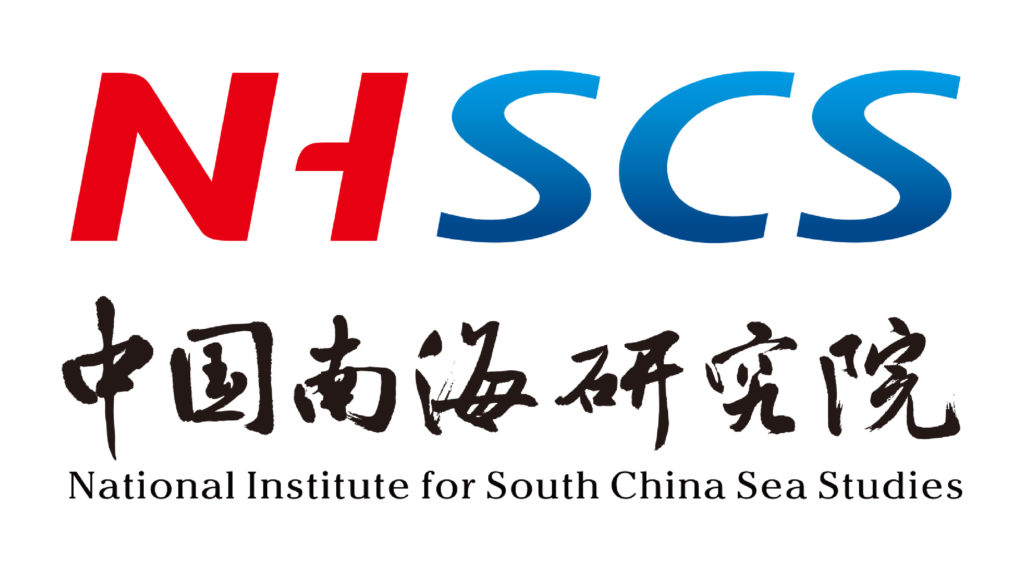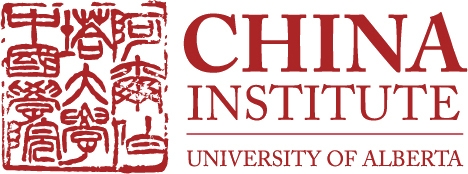2022 Annual Conference
After the U.S. Midterms and the 20th Party Congress: What Will 2023 Hold for U.S.-China Relations?
Washington D.C. and Virtual
November 2, 2022
On This Page
Opening Remarks
On November 2nd, the Institute for China-America Studies (ICAS) organized its 2022 Annual Conference. Given the lingering effects of the COVID-19 pandemic, the conference was conducted in a hybrid mode with a mix of in-person and virtual participation, and with a virtual audience tuning in from both sides of the Pacific. The conference was opened by Dr. Hong Nong, Executive Director of ICAS and the introductory remarks were delivered by Dr. Wu Shicun, Chairman of ICAS’ advisory board. In his remarks, Dr. Wu lamented the fact that despite the hope that the Biden administration would gradually return the U.S.-China relationship to a more normalized path of common cooperation, this has not turned out to be the case. He noted that the United States and China are not a democracy and an autocracy that are fated to indulge in ‘extreme competition’ but are two major countries that share an important responsibility to mutually uphold peace, prosperity and stability in Asia and the world. He urged the two sides to once again re-establish contacts, damaged by the regrettable Pelosi visit to Taipei, and summon the resolve to work constructively to tackle the common bilateral, regional and global challenges. Hopefully, President Xi and President Biden will seek inspiration in the relationship that Chairman Mao and President Nixon forged 50 years ago and will inaugurate a new era of ‘stable, constructive and cooperative coexistence’ that lasts for the next decade and beyond.
Keynote Dialogue
Dr. Wu’s introductory remarks were followed by the highlight of the conference – a keynote dialogue featuring Mr. Jing Quan, Minister at the Chinese embassy in Washington, D.C., and Ms. Susan Thornton, ex-acting Assistant Secretary of State for East Asian and Pacific Affairs and now a senior fellow at Yale Law School. The dialogue was moderated by Mr. Gordon Houlden, an ex-senior Canadian diplomat and Director Emeritus of the China Institute at the University of Alberta.
OPENING REMARKS:
- Dr. Nong Hong, Institute for China-America Studies
- Dr. Wu Shicun, Institute for China-America Studies
KEYNOTE DIALOGUE:
In his initial submission, Minister Jing acknowledged that U.S.-China relations are at a difficult juncture. A couple of years ago, U.S. and Chinese relationship managers used to focus on coordinating their approaches and managing their differences. Today, the focus unfortunately is on worst-case scenarios and coping with foreseen and unforeseen challenges. Protecting and preserving one’s interest vis-à-vis the other has become the overriding priority, and this is emblematic of the state of decline in the relationship. Both sides need to get back to basics and address certain fundamental questions: Are they friends and co-stakeholders or are they adversaries and antagonists? Do they wish to deepen their spheres of cooperation or are they bent on selective or broad-based decoupling? And, finally, do they seek peace or are they indifferent to the drift towards war? As for China, it seeks development and modernization at home, Minister Jing noted, and a secure and stable environment abroad, which includes cordial and constructive ties with the United States.
In her remarks, ex-Assistant Secretary Thornton acknowledged the difficult state of relations. Times, indeed, have changed. Rather than seeing the other as an opportunity, both sides have come to fear each other. This is not just disheartening; it is also adding a dangerous layer of complexity to an already fraught relationship. The pressing need of the times is for the two sides to find a way to restore dialogue, move beyond their more-or-less zero-sum current approaches, and establish a stabilizing ‘new normal’ in relations. At the same time, it is not helpful to frame the future of the bilateral relationship from a purely Manichean viewpoint, she noted. The U.S.-China state of affairs is more complex, and both sides must learn to work through the contradiction of being ‘frenemies’ and manage their relations with each other on that basis. This will not be an easy task, given the antagonistic domestic sentiment in both countries. But it is essential to work through these contradictions, given the centrality of both countries to regional order and global governance.
In conclusion, Minster Jing and ex-Assistant Secretary Thornton were in agreement that more contact (at all levels, government and non-government) and more communications was essential to stabilize U.S.-China relations. And that both sides would be better off observing the prevailing international rules and norms as they engage and compete with each other.
Panel I: U.S.-China Strategic Rivalry in the Biden Era
The first panel of the ICAS 2022 Annual Conference featured four senior U.S. and Chinese academic and think-tank specialists who delved into the underlying drivers of the U.S.-China strategic rivalry. There was a consensus among the panelists that the U.S.-China relationship is at a very difficult juncture, and that optimism was hard to come by with regard to the foreseeable future. The tectonic plates of history are moving in the Indo-Pacific region and globally and this does not augur well insofar as stabilizing the bilateral relationship is concerned.
MODERATOR: Gordon Houlden, China Institute, University of Alberta
SPEAKERS:
- Michael Swaine, Quincy Institute for Responsible Statecraft
- Dennis Wilder, Georgetown University
- Da Wei, Tsinghua University
- Huang Jing, Shanghai International Studies University
The panelists concurred that the United States and China are currently locked in a relationship that contains many pointers of intensifying great power competition. For one, significant differences exist on matters of key national interest, and the positions are hardening than easing. The Taiwan Question, in particular, is fraught with dangerous possibilities. Both sides should be aiming to signal some form of restraint and reassurance to the other side on this cross-strait flashpoint; instead, there is harmful fluidity in the political and miliary stances of both sides. At a broader level, both sides are increasingly entrenched in their own political and ideological narrative of self and the other, which by and large tend to be overly simplistic and self-indulgently seductive. Politicians on both sides are accentuating these differences by appealing to nationalist sentiment. And the hollowing out of pro-engagement interest groups means that there are few forces capable of helping rebalance the bilateral relationship onto a firmer foundation.
Both the United States and China bear their share of the blame for this unhappy state of ties. U.S. policy on China has moved from being about competing with China to actively undermining China’s development and rise. The height of the ‘fence’ that is being built to keep China out (and down) is constantly being adjusted furthermore, adding instability to the relationship. China’s Leninist-Nationalist worldview, propagandistic slogans, and tendency to communicate in the imperative mood does not help matters either. The emphasis on top-down approaches to policy challenges, and it’s doubling down on an expanded definition of security and defense of its rights is making conflict more – not less – inevitable. Its active challenge to the U.S rules-based order is predictably drawing a backlash in Washington and the West.
In conclusion, it was the considered view of the panelists that both the United States and China needed to reestablish communications at the senior officials’ level across a range of issue areas. Opinions varied as to whether the two sides will be able to successfully (or not) endow a modicum of stability to ties in 2023. For this to be the case though, both the United States and China need to look beyond just doggedly pursuing their strategic interests and should explore ways to reassure the other side of their strategic intentions. The trust-deficit is huge and needs working on if the interest-based differences between the two sides is to be narrowed down.
Panel II: U.S.-China Trade and Technology Decoupling
The second panel of the ICAS 2022 Annual Conference featured four specialists from academia, think tanks and private consulting (with industry sector links) who delved into the decoupling-related dilemmas facing the U.S.-China trade and technology relationship. At its essence, this dilemma stems from the fact that China is the U.S.’ biggest customer and at the same time its greatest technological threat, both from a civil and military standpoint. Threading a solution to this dilemma would have been hard in the best of times; it is almost impossibly difficult to reckon with in the strained geoeconomic and geopolitical environment of today.
MODERATOR: Liu Yawei, The Carter Center
SPEAKERS:
- Paul Triolo, Albright Stonebridge Group
- Huang Yukon, Carnegie Endowment for International Peace
- William Reinsch, Center for Strategic & International Studies
- Denis Simon, Duke University
Core and advanced technologies reside at the center of the competition – if not confrontation – in U.S.-China relations today. The great asymmetry in science and technological capabilities that used to exist a generation earlier has more-or-less been whittled down. It bears mentioning in the same breath though that the two countries are not technological peers by any means though. While there is ample entrepreneurialism and commercialization-related aptitude and appetite in China, the United States (and the West) still maintains a commanding lead in basic research and the development of many core technologies. The crux of the problem in this regard though is that the S&T gap between the West and China is continually shrinking – not because of a drop-off in levels of creativity or institutional capacity for innovation in the United States but because China, as a late-developer, has a greater potential for ‘catch-up’ industrialization in the technology sphere. This rise of China as a future technological peer and with potential world-leading aptitude across a range of future intelligent systems is instilling fear in Washington and has prompted it to issue forth numerous rules and regulations in the tech domain that seek to “trip up”, contain, or isolate China.
An intriguing question posted by the panelists with regard to the ‘extreme technology competition’ being imposed upon China by the Biden administration is whether the fundamental assumptions that underlie the U.S.’ strategy is robust or not. The U.S.’ comparative advantage lies in the intellectual property (IP) domain. By interfering in market processes related to innovation ecosystems in order to retain its lock over key emerging and foundational technologies, the Biden administration might well be kneecapping the ‘golden goose’ that sustains the very basis of America’s innovation prowess and IP dominance. The compression of IP royalties earned by America’s most dynamic and creative technology firms will, willy-nilly, impact their ability to incubate the next generation of foundational technologies (and earn handsome IP profits in the process). And vexingly, a strategy that is predicated on keeping Beijing as far from the (semiconductor) technology frontier as possible might also mean that the U.S. might not, from a geopolitical standpoint, have an interest even in the peaceful reunification of Taiwan with China.
Be that as it may, it remains to be seen how strictly or flexibly the administration will implement its technology-denial rules and regulations vis-à-vis China in 2023. In conclusion, a number of thoughtful insights and constructive suggestions were provided by the panelists – the most notable of which was the need for the two sides to renew their overarching govt-to-govt. science and technology cooperation agreement in 2023.
In Collaboration With




